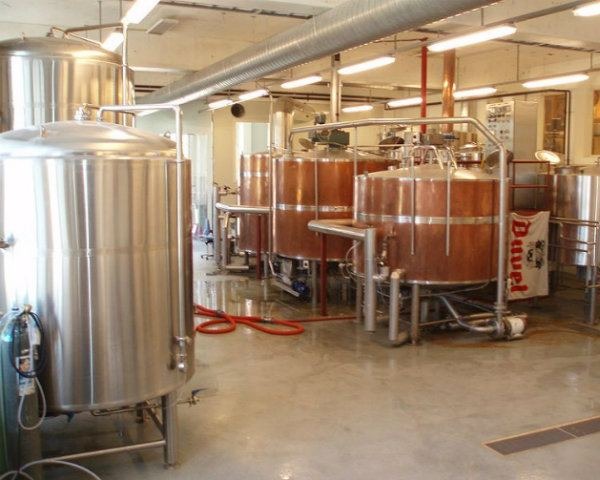German Brewers Embrace Fruit Flavored Beer
Germany is famous for its beer, and the purity of the country's brews has long been protected by a 16th century purity law called the Reinheitsgebot that restricts certain additives and flavorings. But lately Germany's craft brewers have been branching out and even experimenting with fruity flavors to create nontraditional brews that still meet traditional standards of purity.
"It really amazes people what kind of special flavours you can bring to a beer even within the Reinheitsgebot," said Thorsten Schoppe, a Berlin beer-maker who brews a double India pale ale with a citrusy fragrance.
According to The Local, the purity law says that only water, malt, hops, and yeast can be used to make beer. No colorings, flavorings, or preservatives can be added. But "flavored" hops with fruity characteristics can add surprising dimensions to beer.
"Some people don't believe you if you say this is all natural, they think you must have added some flavors," Schoppe said.
Until recently, most flavored hops had to be imported from the U.S., where they're popular among craft brewers. German hop breeder Anton Lutz had been throwing out any seedlings with a fruity fragrance, but in 2006 he decided to start breeding them on purpose. He pollinated a female plant from the U.S. with pollen from traditional German hops to get a flavor that he describes as "hoppy and fruity, not only fruity."
"German beer drinkers expect beers that are not so extreme, so we needed something a little bit softer," Lutz told The Local.
The experimentation has been allowing German brewers to create beers with notes of chocolate and berries, without running afoul of purity rules, which has been helping to attract new customers without scaring away the traditionalists.
"We want to open up beer to new markets," Lutz explained, "not convince people to change their tastes."
